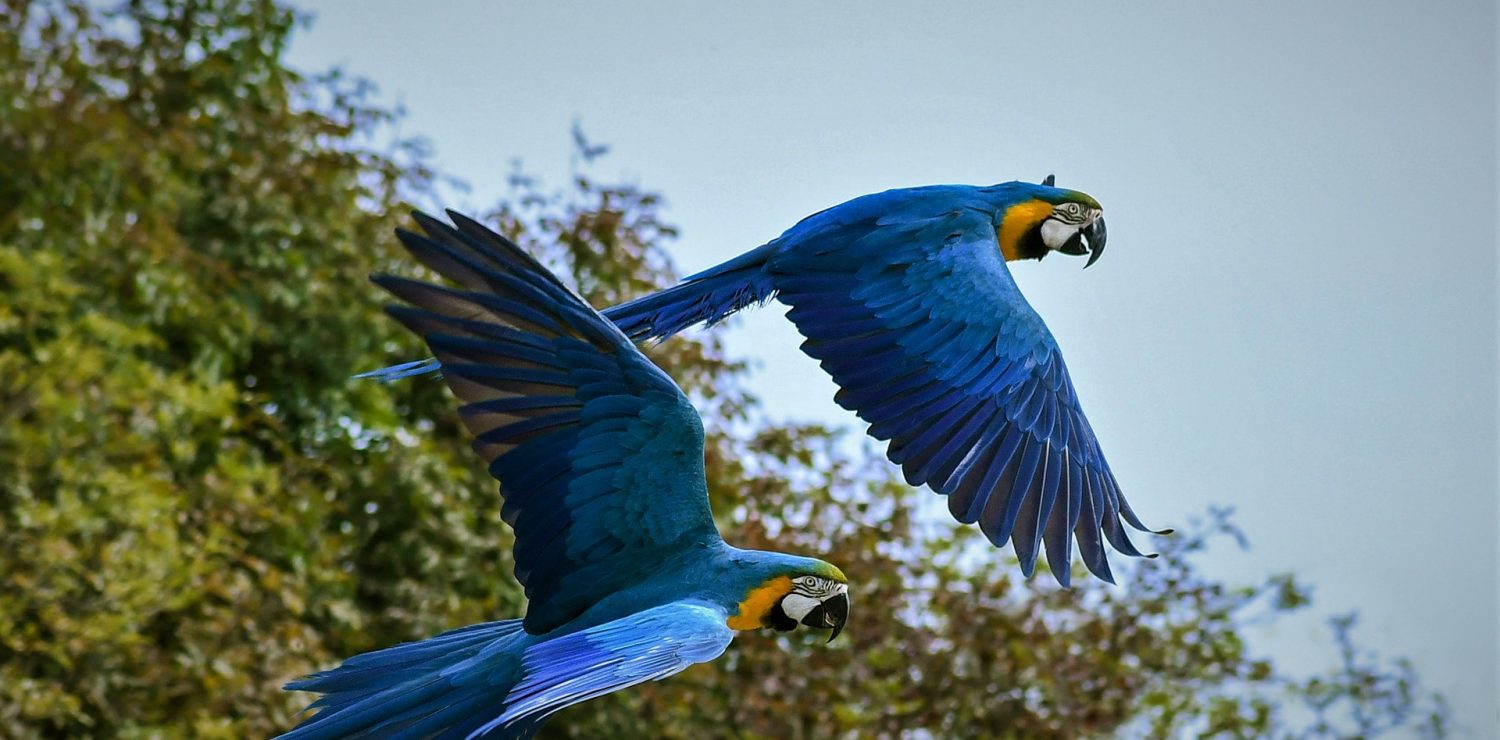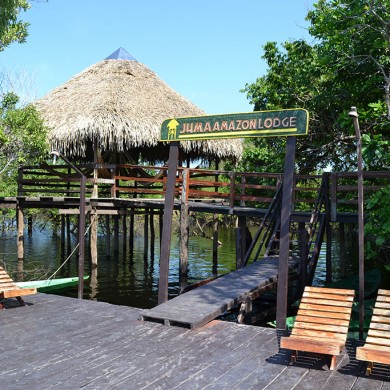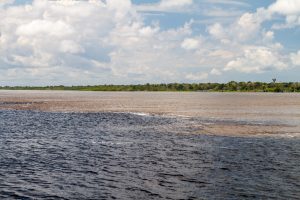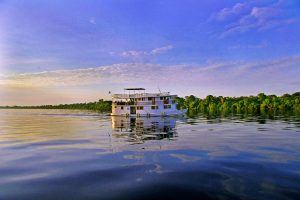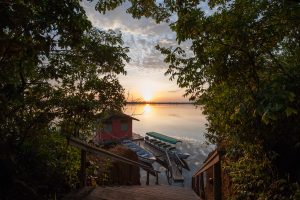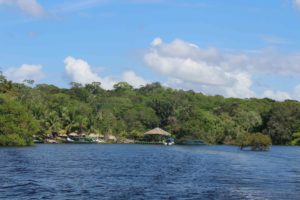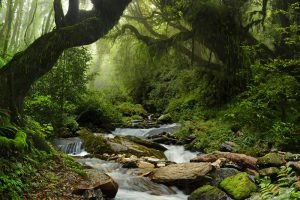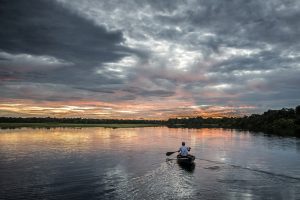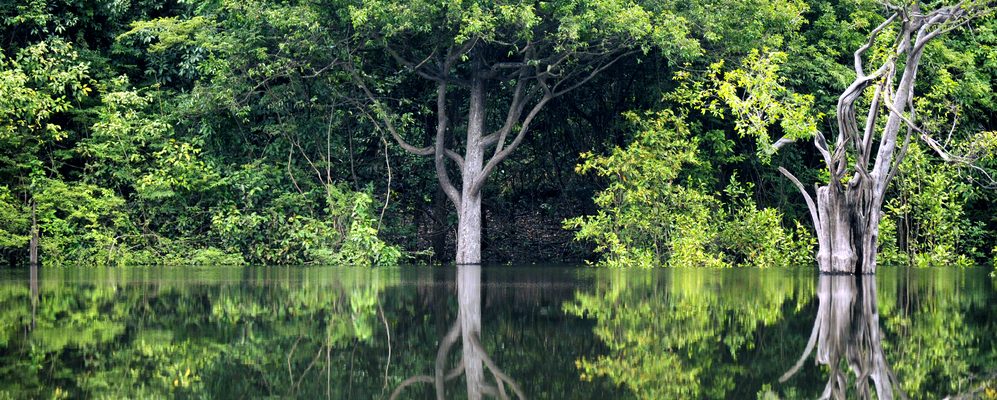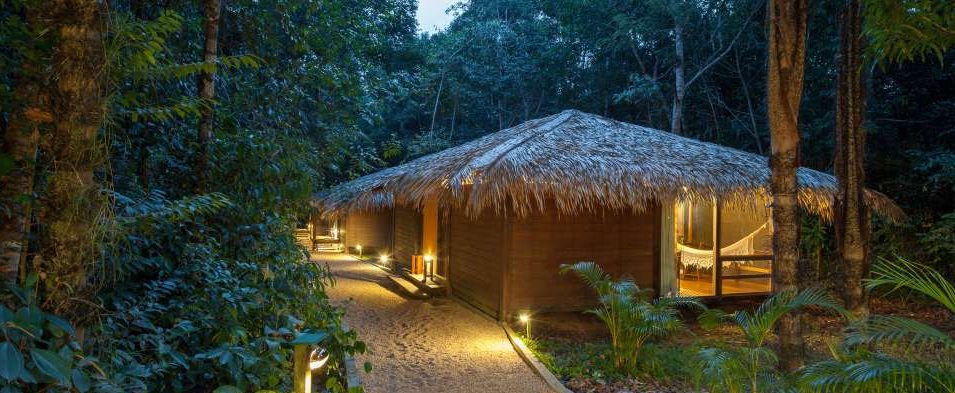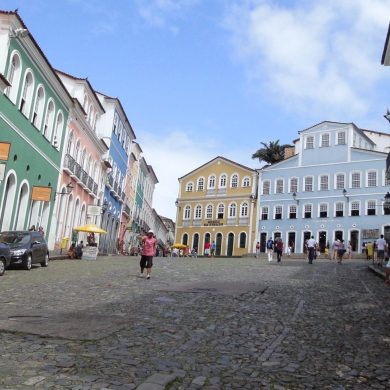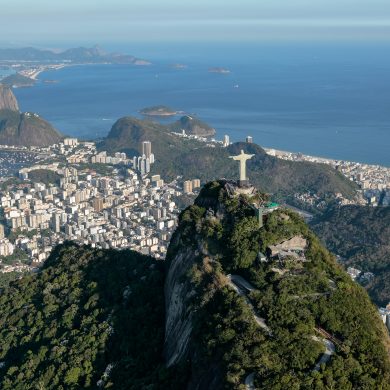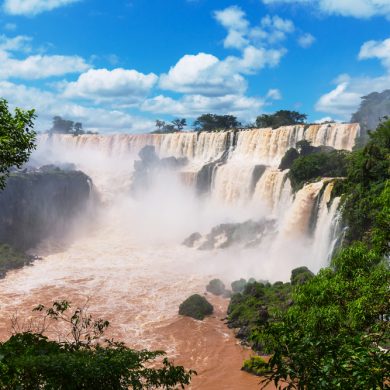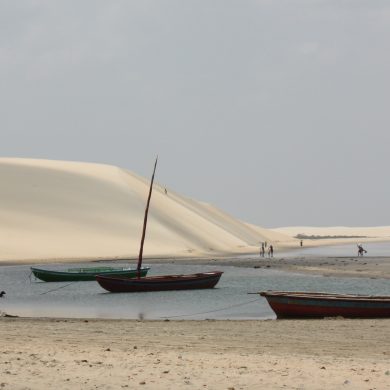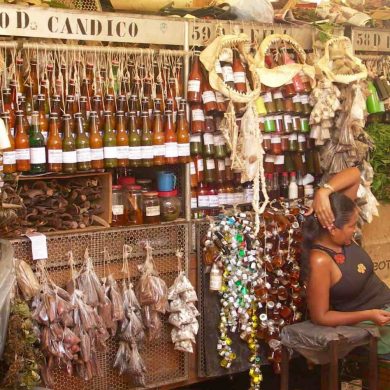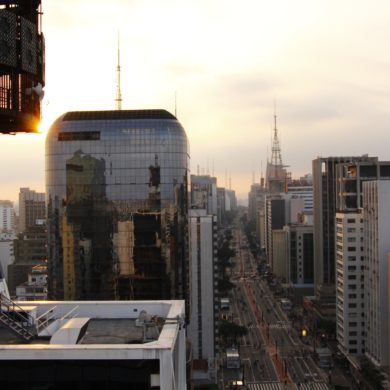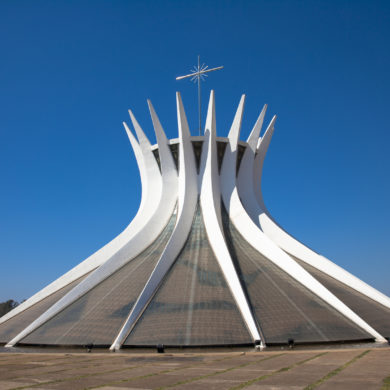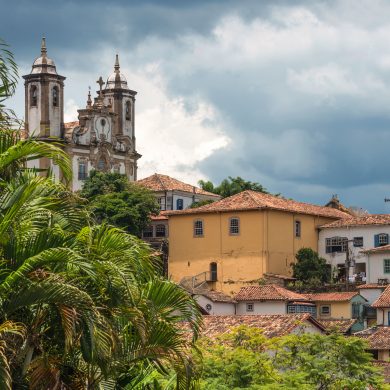Of all our Brazil vacation packages, the Amazon Vacations are the most mysterious of our adventures.
When visiting Amazonia, you will become one of the few people who have had the chance to take in the full extent of the diversity of shapes and colours on our planet. On an Amazon vacation you will admire the ingenuity of the men and women who managed to settle here and adapt to this region that is so difficult to reach from the outside.
Set off and discover the largest rainforest in the world, the size of Europe. An adventure you will never forget. This destination offers a unique immersion in the heart of one of the last truly wild places on earth.
Amazon Vacations in the fascinating jungle!
Exclusive stays in the heart of the Brazilian jungle
This gigantic jungle, still largely unexplored, is an icon of untouched nature and continues to fascinate humans with its almost supernatural exuberance and impressive dimensions that truly are hard to believe!
Our Amazon vacations give you the opportunity to encounter unique animal species such as pink dolphins, blue macaws and an abundance of tropical birds, not forgetting dozens of species of monkeys and other mammals!
This fauna evolves quietly in the magnificent landscape, which changes radically during the rainy and dry seasons. During the heavy rains, all the rivers flood a large part of the surrounding land, fertilizing it and guaranteeing the continuation of the life cycle. When the rains stop in the dry season, the flooded rivers shrink back again. Watching this perpetual and peaceful phenomenon unfold is a huge change from our modern and urban lives and is a great way of recharging your batteries during your Amazon vacation.
Discover the tropical forest in the labyrinth of “Igarapés”
In this kind of environment, the best and sometimes only way to travel is by boat. On our Amazon vacation we offer several private cruises along the Amazon and its tributaries to make the most of this special place.
You will climb aboard a private Amazonian boat, specially chartered for you and your family/group, so that you can fully explore the secrets of the Amazon.
This water adventure is a chance to see some of the hundreds of islands that appear and disappear as the Amazonian basin fluctuates, part of your Amazon vacation brings you to the Anavilhanas, the largest freshwater archipelago in the world.
You can also explore the trails under the vast tropical canopy with a local guide, to get closer to and better understand the extraordinary and abundant fauna and flora. It is also possible to take a canoe trip into the dense foliage if you visit between April and August when the river is at its highest.
Immerse yourself in the wild jungle of Brazil, in total comfort
It is also by boat from Manaus, that you will reach the lodges deep in the Amazon rainforest for a unique and exceptional stay in the beautiful bungalows perched amongst the trees.
Our Amazon vacations give you a unique opportunity to explore the jungle, but with all the necessary comforts for a memorable time. Not only will you encounter wild animal and plantlife that you never believed could exist, you will meet the extraordinary people who live in this giant green sanctuary!
Top Amazon Vacation FAQs
When is the best time to travel to the Amazon?
Each season in the Amazon has its advantages for tourism in terms of wildlife, weather and prices. Generally, the best time to travel to the Amazon depends on where exactly you are going and what you want to do and see while you are there. Of course, your relationship with rain is a big factor! Here are details on the seasons and activities possible in each one.
Weather and activities
The rainy season in the Amazon runs from the middle of December to the middle of May and the dry season runs from around mid – August to November. The temperature falls the closer you get to the coast and increases as you go further inland. This can range anywhere from 28°C on the coast of Pará to 40°C in deep western Amazonas. During the rainy season, the average daytime temperature in central Amazonas is 29°C, however the temperature falls at night and can reach as low as 20°C.
During the rainy season, the increased moisture means much of the Amazonian flora has already began to flower and fruit, which gives a vibrant color to the rainforest. Another advantage is if you decide to visit any of the cities during this time such as Belém or Manaus, the markets will be full of an incredible variety of fresh produce, it is guaranteed that you will find something you have never heard of before! The fact that the trees and plants have begun to fruit also attracts many animals that may not be as tempted to show themselves during the dry season. You can see monkeys, other primates, a huge variety of tropical birds and countless other rainforest dwellers out in search of food. The higher water level means that if you decide to take a cruise, you are much closer to the birds roosting in the rainforest canopy making it easier to spot them.
Although mosquitoes are present in the Amazon all year round, there are slightly more in the wetter seasons. The higher river levels (up to 10 meters in some places!) during the wetter seasons means you have more access to the rainforest. You can explore more of the jungle along the “Igarapés,” the flooded waterways that penetrate the forest. On the downside, during the wet season you may not see as many caimans, although you are still quite likely to see them and some hiking trails may become impassable. You can certainly travel to the Amazon during the rainy season – it has many advantages!
Something to remember about the dry season in the Amazon is that you may still get heavy rain! There are less mosquitoes during the dry season and you will have access to forest hikes and walking trails that would have been impossible to enjoy during the rainy season. Dry season is also the best time to spot reptiles. If you are hoping to see snakes and lizards during your time in the Amazon, then it is better to come during months of August, September, and October. It is easier to catch fish in the Amazon during the dry – season as well; piranha makes for a surprisingly tasty lunch! The abundance of fish attracts the fishing birds such as Jabiru Storks and Roseate Spoonbills.
Finally, you can see the famous Amazonian pink dolphins during both rainy and dry seasons (although you have more chance during the dry season).
Manaus
If you plan to visit the city of Manaus, the rainy season runs from November to May. From June to October there is less rain. The month with the most rainfall is March with an average rainfall of 335.4mm. March also has the highest humidity with an average of 88%. The month with the least rainfall is August (47.3mm).
What do you need to travel to the Amazon?
When you are travelling in the Amazon, your main aim is to stay cool and dry; you also want to keep your belongings dry and undamaged! Of course, what you bring depends on the type of holiday you wish to have in the Amazon, whether you prefer to observe the rainforest from the comfort of one of the luxury lodges we propose on our trips or if you are a budding explorer itching to get out into the forest.
Luggage Bags
If you are planning to spend a lot of time travelling in the Amazon, then it is best you avoid hard – shell suitcases. Carrying on and off boats means unwanted scratches and marks, not to mention they are harder to store and tend to be brittle. Also, they take up more room which can be problematic if you happen to take a trip on a small Amazonian canoe. It is better you opt for lightweight and durable duffel bags and rucksacks, waterproof or with a waterproof cover is best.
Clothes
The first item of clothing you will need for the Amazon is a waterproof jacket. Preferably light – weight but make sure it is 100% waterproof! One with Zip covers is best as it stops waters seeping in through the zips. Bring a number of loose – fitting, fast – drying long sleeve and short sleeve t- shirts, (remember long sleeves protect you from insect bites as well as the sun). Lightweight waterproof trousers are great for trekking in the jungle especially during the rainy season. A fleece or warm jumper is useful for the when the weather gets cooler in the evenings. A hat that keeps the sun out of your eyes is useful for hiking in the evening and watching the beautiful Amazonian sunsets! Fill the rest of your bag with plenty of spare socks and you are on your way to a comfortable stay in the jungle.
Footwear
To travel to the Amazon, your best bet is to bring a pair of lightweight and waterproof hiking boots. In the dry season, or if you don´t plan on doing many excursions you may get away with hiking shoes. The lodges provide rubber wellingtons for the excursions in the rainforest during both seasons and it is advisable you wear those. Make sure the sole of the footwear has good grip. Also, don´t forget your flip flops for lounging in the evenings and for using around the common areas of the lodge!
Gear
A pair of sunglasses is useful for travelling in the Amazon as it can get sunny during the day. A pair of binoculars is excellent to have to spot wildlife and observe the wonderful landscapes. Bring spare chargers, memory cards, batteries etc. for your phones and cameras in case something gets lost or broken. It is also a great idea to bring waterproof zip – lock bags for small electrical items and make sure your documents (passports, boarding passes) are in plastic covers as well. You will definitely need plenty of insect – repellent and sunscreen; in fact, these are an absolute must! Talcum powder is also good for absorbing moisture and helping get your feet into rubber wellington boots!
What are the top places to see in the Amazon?
The Meeting of the Waters is one of the top natural attractions you will see in the Amazon. It is a wonderful sight, where the dark water of the Rio Negro and the milky sand – coloured water of the Amazon (Rio Solimões) run side by side for Kilometres, but never mix! It is a wonderful experience and a favourite amongst visitors to the region to swim with the friendly “botos” (the famous pink Amazonian dolphins). They are very friendly towards humans especially if you share some fish with them! You should also take some time to visit some of the Indigenous communities that live along the river´s edge known as “cablocos.” These visits are organized by your guide and are a very fulfilling experience, a great chance to experience a way of life completely different from your own. You may also learn some secrets of the rainforest, (plant and herb medicines for example) from your new friends!
Another favourite activity by visitors to the Amazon is to try your hand at piranha – fishing. Despite their ferocious behaviour, it is possible to safely fish for them and they make for a surprisingly tasty lunch! If you are feeling particularly courageous, take a night tour with your forest guide to see the caimans on the river, with the help of a bright light you can spot them, catch them and even hold them in your boat. Not to be missed!
Lodges
To experience the rainforest in the best possible conditions, we would recommend staying in an Amazon rainforest lodge. Depending on your tastes, these range from eco – lodges with a focus on the preservation of the surrounding eco – systems to grand accommodations with high class facilities. The advantage of staying in a lodge is that you can safely and comfortably explore the rainforest with the qualified guides, also activities and excursions are tailored to your needs in terms of language and the time of the year.
One of our favourite lodges amongst others is the Anavilhanas Jungle Lodge. Situated on the famous Anavilhanas archipelago opposite the Rio Negro, this lodge combines luxury with ecology and uses materials from the surrounding forest for its decoration. One of our favourite features of the Anavilhanas jungle lodge are the fantastic wall – size windows, which really give the feeling of true immersion in the jungle. Watch the rainforest go by as you lounge in your Brazilian hammock! There are excellent excursions available from the lodges, most of which are included in your stay.
